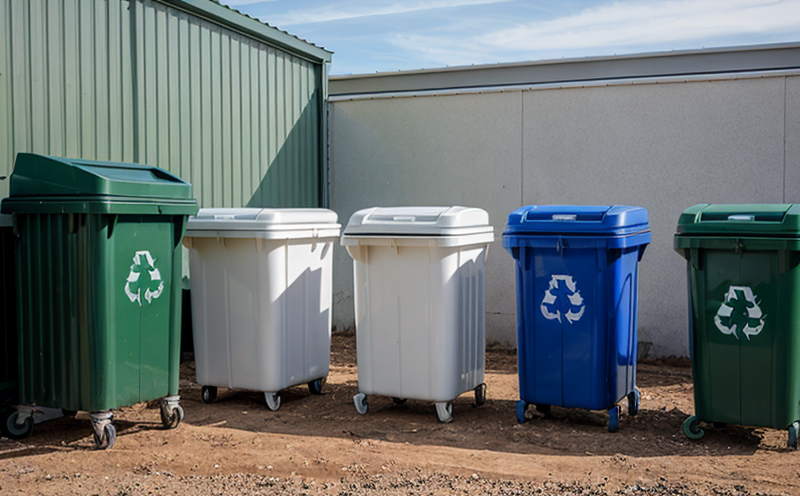EN 13432-20 Home Compostable Packaging Test
The EN 13432:2008 standard outlines the requirements for packaging designed to be composted in home or industrial composting facilities. The test method, EN 13432-20, specifically addresses biodegradable and compostable materials ensuring they meet stringent criteria for full degradation under controlled conditions.
The testing process for EN 13432-20 involves several critical phases that are essential to ensure the packaging meets all the standards set forth by this regulation. The first phase is the biodegradation test. This tests whether the packaging breaks down into its constituent parts within a defined period in industrial composting conditions, which typically involve temperatures between 58°C and 60°C over a minimum of 12 weeks.
The second critical phase focuses on ensuring that biodegradable plastics do not release harmful substances during decomposition. This is achieved through the toxicity test, where extracts from the decomposed materials are tested for their potential to inhibit the growth of microorganisms and plants.
A third crucial aspect involves verifying the packaging’s ability to disintegrate into compost after degradation, ensuring it contributes positively to soil quality. This is done through the disintegration test, which checks if the residues remain in a form that does not interfere with the composting process or soil fertility.
The final phase examines whether the packaging can be recycled alongside conventional waste streams without adverse effects on other recyclables, thus ensuring compatibility within existing recycling facilities. This is known as the compatibility test.
In summary, EN 13432-20 ensures that home compostable packaging not only decomposes but does so in a manner that benefits the environment and supports sustainable waste management practices.
Industry Applications
| Industry | Application |
|---|---|
| Packaging Industry | Testing home compostable materials for compliance with EN 13432-20 standards. |
| Retail and E-commerce | Ensuring packaging used in direct-to-consumer products meets regulatory requirements for compostability. |
| Agriculture and Horticulture | Testing packaging used in agricultural products to ensure it contributes positively to soil health upon degradation. |
| Consumer Goods | Evaluating the compostability of consumer goods packaging to enhance brand sustainability credentials. |
The test is particularly relevant for sectors where sustainable practices are key, ensuring that packaging materials do not hinder efforts towards a circular economy. By adhering to EN 13432-20, companies can demonstrate their commitment to reducing waste and promoting environmental responsibility.
Customer Impact and Satisfaction
- Enhanced Brand Reputation: Compliance with EN 13432-20 demonstrates a company’s commitment to sustainability, which enhances its reputation among eco-conscious consumers.
- Regulatory Compliance: Meeting the stringent standards ensures that packaging complies with local and international regulations, avoiding potential legal issues.
- Increased Market Access: Compliant products can be sold in markets that prioritize sustainable practices, expanding market reach.
- Consumer Confidence: By providing evidence of compostability, companies build trust among consumers who are increasingly concerned about the environmental impact of packaging.
The rigorous testing process not only meets regulatory requirements but also ensures that products perform effectively in real-world conditions. This reliability fosters customer satisfaction and loyalty, driving repeat business and positive word-of-mouth.
Environmental and Sustainability Contributions
- Reduction of Landfill Waste: By ensuring packaging can decompose in home composting conditions, EN 13432-20 helps reduce the amount of waste sent to landfills.
- Support for Soil Health: Packaging that breaks down into compost contributes nutrients back to the soil, supporting agricultural and horticultural practices.
- Promotion of Circular Economy: The test ensures packaging materials are compatible with existing recycling streams, fostering a circular economy where waste is minimized and resources are reused.
The implementation of EN 13432-20 supports broader environmental goals by promoting sustainable practices in the packaging industry. This contributes to the global effort towards reducing carbon footprints and mitigating climate change impacts.





